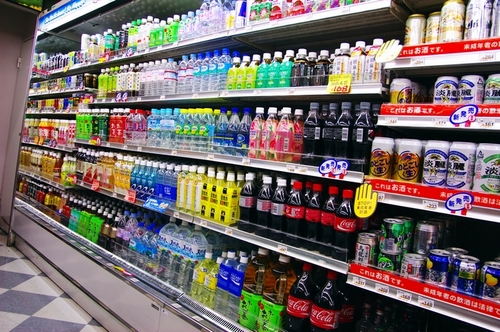September 4, 2013
Food Companies to Launch Delivery-Rules Revision Project to Reduce Food Loss
Keywords: Food Government Policy / Systems
A working group of 16 major Japanese food companies, working to review business practices to reduce food loss, will launch a pilot project to revise conventional rules on the product age acceptable for delivery to save food from being discarded, according to their interim report of March 5, 2013. Project details were to be discussed after April. The group was set up by the Ministry of Agriculture, Forestry and Fisheries in 2012 as part of a program to promote environmental initiatives by food companies.
According to the Ministry's fiscal 2012 report, an estimated 18 million tons of food are wasted annually in Japan. Of that, food lost along commercial supply chains which is still fit for consumption is estimated to amount to three to four million tons a year. Results from a working group survey regarding rates of returned or discarded processed foods showed that beverages and sweets have high pre-shipping discard rates, and that one of the reasons for this is the time limit set for product delivery.
In Japan, many food companies adopt a quality assurance practice called the "one-third rule." Under this rule, manufacturers ensure that food products are delivered to retailers within one third of their shelf life (length of time from production date to "best-before" date), and products at retailers having crossed the two-thirds point in their shelf life must be returned to manufacturers. This business practice leads to large amounts of returned and discarded food.
In the pilot project, the group will change the time limit for delivery to "half of the product's shelf life remaining," and examine the effects of this change on reductions to food loss, carbon dioxide emissions, as well as the frequency of delivery deadline expiration. The new rule will initially apply to food items (e.g. beverages and sweets) which may be useful for evaluating impacts. When proven effective, the group plans to expand application of the new rule to other food items.
Related JFS Articles
- Food Waste and Disaster Relief from the Perspective of the Food Bank (Part One)
- Japanese Non-Profit Working to Expand Food Bank Activities
- Nation-Wide Network Built at the Third Symposium for Food Banks
- High Percentage of Food Waste from Hotels in Food Service Industry in FY2009
- Japanese NPO Promoting Food Bank to Make Effective Use of Food
Related
"JFS Newsletter"
- Fifth Contest to Award Excellent Environmental and Social Practices by Junior High, High School Students
- Coco Farm & Winery: An Amazing Model of Special Needs Students and Community
- Locally Produced Food in School Lunches----A Challenge by Nyuzen, Japan
- Seikatsu Club: Japanese Cooperative Managed by Members' Will to Confront Social Problems
- Increase Revenues without Increasing Catches -- How the Sustainable Sakura Shrimp Fishery in Suruga Bay Does It
Related
"Popular Articles"
- Yukiguni Maitake and Grameen Group Launching Joint Mung Bean Project in Bangladesh
- Japan's Food Self-Sufficiency Ratio Unchanged at 40% for 8 Years
- Food Pictograms Used at APEC SME Summit 2010
- Rental Organic Farm Provides Farmland for Housing Development Project
- Greenpeace Survey Ranks Five Top Japanese Supermarket Chains for Fish Safety, Finds Problems



